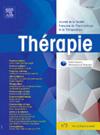How to facilitate the wider use of pharmacogenetic tests?
IF 1.8
4区 医学
Q3 PHARMACOLOGY & PHARMACY
引用次数: 0
Abstract
4P medicine (personalized, preventive, predictive, and participatory) is experiencing a remarkable rise, and pharmacogenetics is an essential part of it. However, several obstacles are hindering its deployment. This round table brought together a group of experts to take stock of the situation, reflecting on ways to facilitate the prescription of these tests and the dissemination of the results on a national scale. The experts looked at the methods of prescribing and communicating pharmacogenetic data in the current situation as well as in the coming years, with the arrival of artificial intelligence software. The questions relating to the reimbursement of tests — as topical as ever — were also discussed, as this is a way to allow all patients to access these tests. Numerous recommendations have been formulated on these various points, aimed at facilitating prescription management for healthcare professionals, and ensuring the retention and use of the results throughout the patient's life. Finally, better patient information was recommended, as well as strengthening the involvement of healthcare professionals and industry stakeholders in this process, with insistence on the necessary training and commitment to ensure its success.
如何促进药物遗传学测试的广泛应用?
4P医学(个性化、预防性、预测性和参与性)正在经历显著的增长,药物遗传学是其中的重要组成部分。然而,几个障碍阻碍了它的部署。这次圆桌会议汇集了一组专家,以评估局势,思考如何促进这些测试的处方和在全国范围内传播结果。专家们研究了在当前情况下以及随着人工智能软件的到来,未来几年开出处方和交流药物遗传数据的方法。还讨论了与检测费用报销有关的问题,这是一个话题,因为这是让所有患者都能获得这些检测的一种方式。针对这些不同的问题,已经制定了许多建议,旨在促进医疗保健专业人员的处方管理,并确保在患者的整个生命中保留和使用结果。最后,建议提供更好的患者信息,并加强医疗保健专业人员和行业利益相关者在这一过程中的参与,坚持提供必要的培训和承诺,以确保其成功。
本文章由计算机程序翻译,如有差异,请以英文原文为准。
求助全文
约1分钟内获得全文
求助全文
来源期刊

Therapie
医学-药学
CiteScore
3.50
自引率
7.70%
发文量
132
审稿时长
57 days
期刊介绍:
Thérapie is a peer-reviewed journal devoted to Clinical Pharmacology, Therapeutics, Pharmacokinetics, Pharmacovigilance, Addictovigilance, Social Pharmacology, Pharmacoepidemiology, Pharmacoeconomics and Evidence-Based-Medicine. Thérapie publishes in French or in English original articles, general reviews, letters to the editor reporting original findings, correspondence relating to articles or letters published in the Journal, short articles, editorials on up-to-date topics, Pharmacovigilance or Addictovigilance reports that follow the French "guidelines" concerning good practice in pharmacovigilance publications. The journal also publishes thematic issues on topical subject.
The journal is indexed in the main international data bases and notably in: Biosis Previews/Biological Abstracts, Embase/Excerpta Medica, Medline/Index Medicus, Science Citation Index.
 求助内容:
求助内容: 应助结果提醒方式:
应助结果提醒方式:


